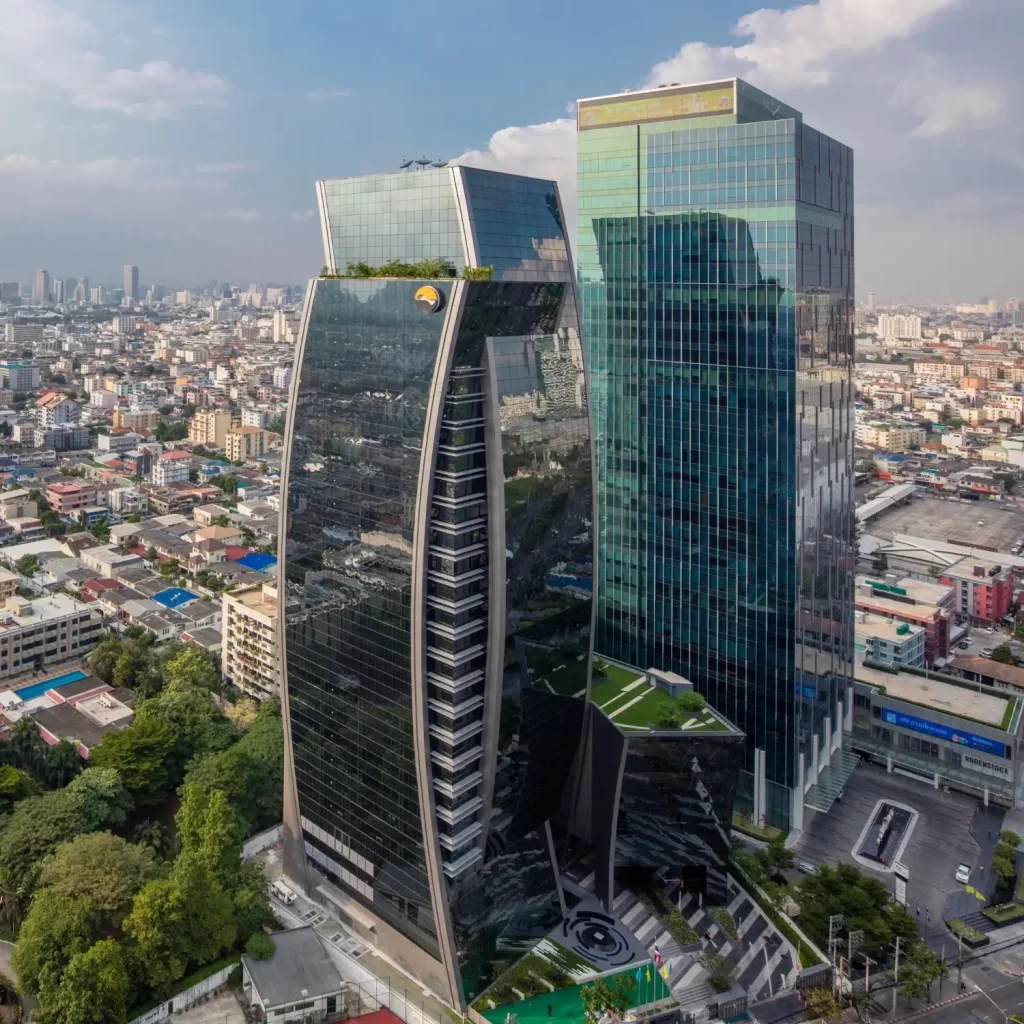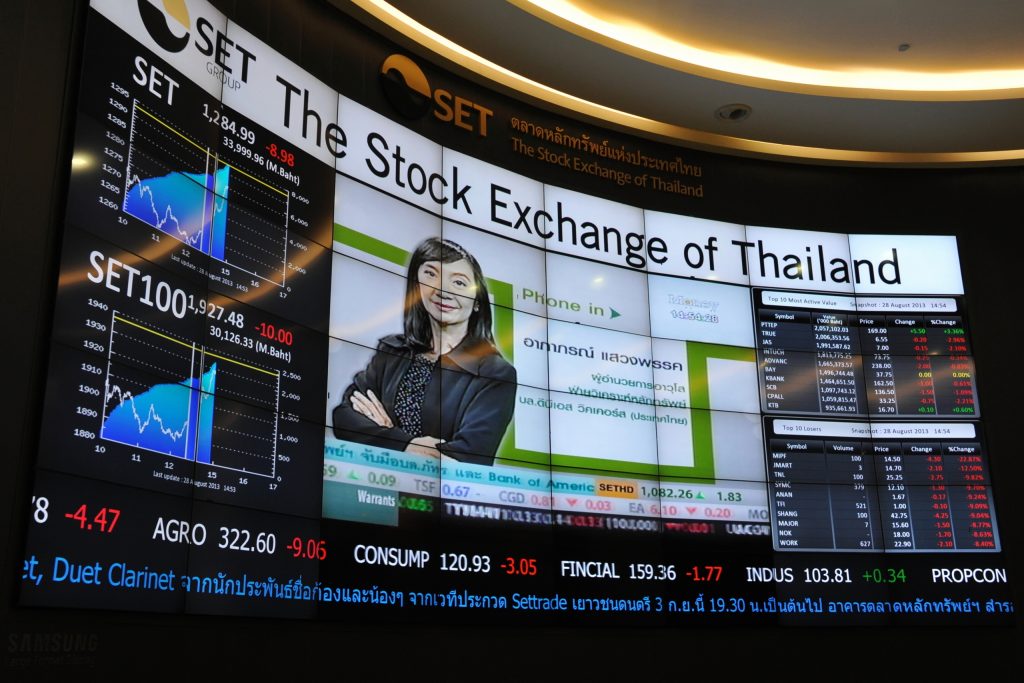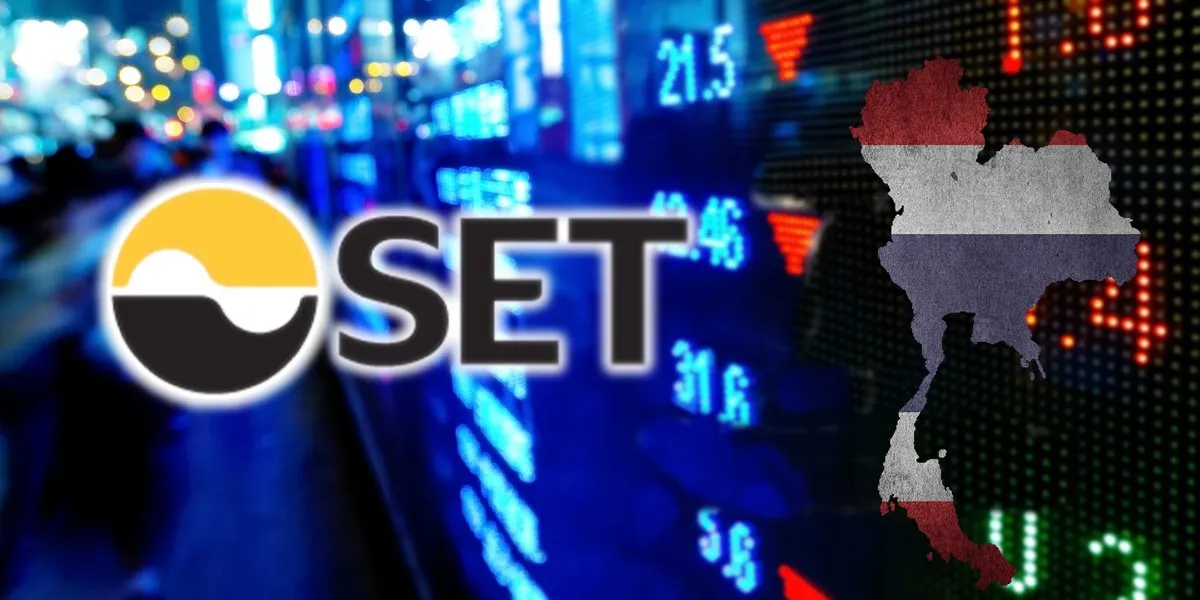Thailand SET Poised for Growth Amid Deepening Ties with China
- Strengthening Relations: Thailand’s deepening economic and diplomatic ties with China signal positive growth prospects for the Thailand Stock Exchange (SET), driven by robust trade agreements and investment initiatives between the two nations.
- Key Player in BRI: Thailand’s strategic location and participation in China’s Belt and Road Initiative (BRI) present lucrative opportunities for infrastructure investments, including ports, railways, and energy facilities, poised to stimulate economic growth and sectoral demand.
- Economic Integration: Bilateral trade and investment between Thailand and China are on the rise, with China emerging as one of Thailand’s largest trading partners and foreign investors. The implementation of the RCEP further strengthens economic integration, enhancing market access and trade opportunities.
- Tourism Boost: Cultural and diplomatic exchanges between Thailand and China promote tourism, with Chinese visitors contributing significantly to Thailand’s tourism sector. This influx of tourists is expected to benefit businesses in the tourism industry and drive growth in the Thai stock market.
- Investor-Friendly Policies: Thailand’s efforts to attract foreign investment and implement business-friendly policies bolster investor confidence in the SET. Government initiatives aimed at enhancing competitiveness and supporting innovation create a conducive environment for both domestic and foreign investors.
- Resilience Amid Challenges: Thailand’s resilience in navigating global challenges, such as the COVID-19 pandemic, underscores its attractiveness as an investment destination. Swift government responses and effective containment measures have paved the way for a robust recovery, instilling confidence in the Thailand SET.
- Bright Outlook: With supportive government policies, growing infrastructure investments, and increasing trade and investment flows, the outlook for the Thailand SET remains bright. Capitalizing on its strategic partnership with China, Thailand is poised to drive sustainable economic growth in the foreseeable future.

Investors looking to tap into the potential of the Thailand market may find ample opportunities for growth and profitability as Thailand deepens its relations with China and leverages bilateral cooperation to fuel economic expansion.
If you are interested in gaining exposure to the Thailand SET and capitalizing on the growth opportunities arising from the deepening relations between Thailand and China, consider reaching out to Knightsbridge Law. With expertise in navigating international markets and a focus on delivering tailored investment solutions, Knightsbridge Law can assist investors in accessing the Thailand market and maximizing their investment potential. Contact Knightsbridge Law today to explore your options and embark on your investment journey in Thailand.
As Thailand continues to strengthen its economic and diplomatic relations with China, the outlook for the Thailand Stock Exchange (SET) appears increasingly positive. The burgeoning partnership between the two nations, characterized by robust trade agreements, infrastructure projects, and investment initiatives, is expected to bolster Thailand’s economy and consequently drive growth in its stock market.
Thailand’s strategic location, coupled with its well-established infrastructure and diverse economy, positions it as a key player in China’s ambitious Belt and Road Initiative (BRI). Through this initiative, China aims to enhance connectivity and foster economic cooperation across Asia and beyond. Thailand’s participation in the BRI opens up opportunities for significant investments in infrastructure projects such as ports, railways, and energy facilities, which are poised to stimulate economic growth and drive demand across various sectors.
Moreover, the deepening economic ties between Thailand and China extend beyond infrastructure development. Both countries have been actively engaged in enhancing bilateral trade and investment, with China emerging as one of Thailand’s largest trading partners and foreign investors. The implementation of the Regional Comprehensive Economic Partnership (RCEP), the world’s largest trade pact, further solidifies the economic integration between Thailand and China, paving the way for increased market access and trade opportunities.

In addition to economic cooperation, Thailand and China have been fostering cultural and diplomatic exchanges, strengthening people-to-people ties and promoting tourism between the two nations. As Chinese tourists continue to flock to Thailand, contributing significantly to the country’s tourism sector, businesses catering to the tourism industry are expected to benefit, further driving growth in the Thai stock market.
The positive outlook for the Thailand SET amid deepening relations with China is also supported by Thailand’s ongoing efforts to attract foreign investment and promote business-friendly policies. The government’s initiatives to enhance competitiveness, streamline regulations, and support innovation are conducive to fostering a conducive environment for both domestic and foreign investors, instilling confidence in the country’s economic prospects.
Furthermore, Thailand’s resilience and adaptability in navigating global challenges, such as the COVID-19 pandemic, underscore its attractiveness as an investment destination. The government’s swift response and effective containment measures have helped mitigate the impact of the pandemic on the economy, paving the way for a robust recovery and fostering investor confidence in the Thailand SET.
In conclusion, as Thailand deepens its relations with China and capitalizes on the opportunities arising from bilateral cooperation, the outlook for the Thailand SET remains bright. With supportive government policies, growing infrastructure investments, and increasing trade and investment flows, Thailand is well-positioned to capitalize on its strategic partnership with China and drive sustainable economic growth in the years to come. Investors keen on tapping into the potential of the Thailand market may find ample opportunities for growth and profitability in the evolving landscape of Thailand-China relations.
The infrastructure and transport links between China and Thailand play a pivotal role in facilitating economic cooperation and connectivity between the two nations. Here are some key points highlighting their significance:
- Railway Projects: One of the most notable infrastructure projects linking China and Thailand is the construction of the China-Thailand Railway. This high-speed rail network aims to connect Kunming in China’s Yunnan Province with Bangkok, Thailand’s capital, through Laos. Once completed, the railway will enhance trade and passenger transportation efficiency between the two countries and promote regional economic integration.
- Ports and Maritime Connectivity: China and Thailand have also been investing in port development and maritime connectivity initiatives. Thailand’s strategic location along key maritime routes makes it an important partner for China’s Maritime Silk Road initiative under the Belt and Road Initiative (BRI). Port projects, such as the expansion of Laem Chabang Port in Thailand, aim to bolster maritime trade and facilitate smoother cargo flows between the two countries and beyond.
- Road Infrastructure: Improvements in road infrastructure, including highways and border crossings, have been prioritized to facilitate cross-border trade and transportation. The construction and upgrading of highways linking China’s southwestern provinces to Thailand’s northern regions aim to enhance connectivity for both trade and tourism.
- Air Connectivity: Enhanced air connectivity through direct flights between major cities in China and Thailand has contributed to the growth of tourism and business travel. Both countries have seen an increase in flight routes and passenger volumes, facilitating closer ties and economic exchanges.
- Energy Infrastructure: Collaboration in energy infrastructure, including the development of pipelines and power transmission projects, contributes to energy security and supports economic development initiatives. Projects such as the construction of natural gas pipelines aim to diversify energy sources and meet growing demand in both countries.
Overall, the infrastructure and transport links between China and Thailand serve as vital arteries for economic cooperation, trade facilitation, and regional integration. Continued investments and collaborations in these areas are expected to further strengthen bilateral ties and unlock new opportunities for mutual growth and prosperity.
Thailand and China maintain a multifaceted political relationship characterized by diplomatic cooperation, economic partnership, and strategic engagement. Here are some key aspects of their political relations:
- Diplomatic Ties: Thailand and China established diplomatic relations in 1975, marking the beginning of formal diplomatic engagement between the two nations. Over the years, they have maintained regular high-level exchanges, including visits by heads of state and government officials, to strengthen bilateral ties and address shared challenges.
- Strategic Partnership: Both countries have designated their relationship as a “comprehensive strategic partnership,” signifying the depth and breadth of their cooperation across various domains. This partnership encompasses political dialogue, defense cooperation, economic collaboration, and cultural exchanges aimed at fostering mutual understanding and friendship.
- Regional Cooperation: Thailand and China are active participants in regional organizations and frameworks such as the Association of Southeast Asian Nations (ASEAN) and the Lancang-Mekong Cooperation (LMC) mechanism. Through these platforms, they engage in dialogue and cooperation on regional issues, including economic development, security, and environmental protection.
- Economic Collaboration: Economic ties between Thailand and China have expanded significantly in recent years, with China emerging as one of Thailand’s largest trading partners and investors. Bilateral trade volumes have grown steadily, driven by robust demand for Thai exports, investment flows, and infrastructure projects supported by China’s Belt and Road Initiative (BRI).
- Infrastructure Development: China’s involvement in infrastructure projects in Thailand, such as railway construction, port development, and energy infrastructure, has contributed to closer economic integration and connectivity between the two countries. These projects serve as tangible symbols of their political and economic cooperation.
- Cultural Exchanges: Cultural diplomacy plays a vital role in Thailand-China relations, with both countries actively promoting cultural exchanges, educational cooperation, and people-to-people ties. Programs such as student exchanges, cultural festivals, and language learning initiatives foster mutual understanding and strengthen social bonds between their peoples.
- Challenges and Disputes: While Thailand and China enjoy strong political relations, they also face occasional challenges and disputes, particularly regarding issues such as territorial claims in the South China Sea and concerns over environmental impact and sovereignty related to infrastructure projects. However, both sides have demonstrated a commitment to resolving differences through dialogue and peaceful means.
Overall, the political relations between Thailand and China are characterized by a mix of cooperation, strategic alignment, and occasional challenges. Their enduring partnership continues to evolve and adapt to changing regional and global dynamics, reflecting the importance of their bilateral relationship in the Asia-Pacific region.
Shayne Heffernan









